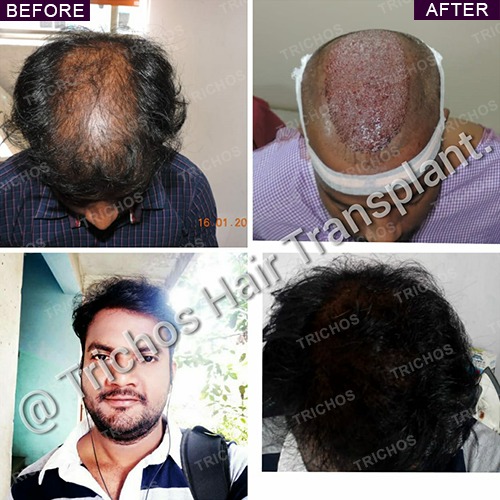Can Air Pollution Lead to Hair Loss?
In our daily routine, we are exposed to vehicular and dust pollution in heavy traffic conditions while making our daily commute to workplaces and on the way back home.
Does the brunt of the pollution affect our hair? Does it lead to hair fall or worse, result in baldness? These are questions that are often raised by those who are concerned about the pollution impact on their hair.
In this educational video, noted dermatologist & trichologist and one of the Best Hair Transplant Surgeons in Hyderabad Dr John Watts explains the scientific link between pollution and hair loss in layman’s language.
“I will come straight to the point. Research shows that air pollutants can lead to hair loss,” says Dr John Watts, who has performed over 1900+ hair and beard hair transplants successfully.
This happens as an external particulate matter like fuel residue and accumulation of dust particles can upset the Beta Catenin, cyclin D1 and cyclin E levels that are essential for healthy hair growth, which may lead to hair fall.
How to Protect Your Hair from Pollution Impact?
Explaining in detail how one can take preventive steps to ensure harmful pollutants do not affect hair, Dr John Watts lists out four important steps one could take easily.
Step 1:
The best way to protect one’s hair from harmful dust pollutants is to cover them up by wearing a cap or a scarf while going outside on the roads. Pollutants can easily stick to one’s hair due to the accumulation of sweat and dust. Eventually, the hair follicles can get damaged when the pores get blocked.
Step 2:
In the event of continuous and inevitable exposure of one’s hair to particulate matter and dust, Dr John Watts says that one can take recourse to hair serum for protection from their impact.
“The hair serum is highly effective in preventing damage to the hair from outside exposure as they form a layer around the hair follicle,” he informs.
The serum is also effective in reducing oxidative stress on the scalp and helps in controlling mild inflammation.
Step 3:
One easier method to prevent one’s hair from harmful pollutant exposure is to go for the head wash to clean the scalp of any sweat, dust and pollutant residues as they are known to stick to the hair follicles, leading to their eventual damage.
“These residues can clog the pores on the scalp. This is why the scalp needs to be washed after an outside exposure to pollution,” advises Dr John Watts.
If one cannot go for a frequent head wash for any personal health reason, the other alternative is to get a head wash at least once in two days.
Step 4:
To prevent further damage to hair that is exposed to pollutants, Dr John Watts advises them to minimally use hairstyling devices like hair straighteners, heated combing or hair ironing.
“Due to overexposure to pollutants, the hair might already become brittle. There is also the possibility of infection due to inflammation. In such a scenario, if hair styling devices are used excessively, it can lead to hair breakage,” informs Dr John Watts.
In his concluding remarks, Dr John Watts revisits the question of whether pollution can lead to baldness.
“Pollutants can cause hair fall and hair damage but it is unlikely that it can be linked to baldness. It would be unreasonable for one to blame pollution for one’s baldness, which can be due to different factors including heredity,” says Dr John Watts, while urging the viewers to share the video among their friends for generating awareness.
For those with advanced stages of baldness, the only remedy is a hair transplant procedure.
We at Trichos provide premium hair transplant services in Hyderabad. Reach us for more information!
Book an appointment for expert guidance


About
Causes
Alopecia
Restoration
Procedures
Locations
Disclaimer: While hair transplants are generally safe and effective, as with any medical procedure, there can be minimal and temporary side effects based on specific or underlying medical condition of the individual patient. Please consult in person with our qualified medical team at Trichos for a thorough assessment of your specific condition and individualized guidance on the potential risks and benefits associated with our hair restoration treatments.
Learn more about Medical Consent for Surgeries.



